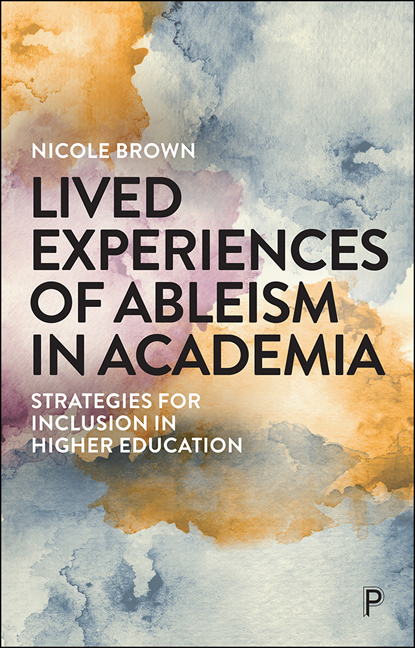16 - Depressed academics: building a group blog community
Published online by Cambridge University Press: 18 December 2021
Summary
Introduction
Mental health problems are widespread: close to 1 in 5 American adults experienced mental health problems in 2018 (Substance Abuse and Mental Health Services Administration, 2019a). Among them, unemployment is higher (Substance Abuse and Mental Health Services Administration, 2019b), school dropout more common (Dupéré et al, 2018) and overrepresentation in both the health care system (Owens et al, 2007; Department of Veterans Affairs, 2016) and the penal system (Bronson and Berzofsky, 2017; Skowyra and Cocozza, 2007).
Within academia, the prevalence is worse. A study (Levecque et al, 2017) in Flanders showed PhD students to be over twice as likely to score high on depression screening questionnaires, with relative risks of 2.43 versus highly educated general population, of 2.84 versus highly educated employees and 1.85 versus higher education students, respectively.
As a way to build a community around these issues, and as a stepping stone to further work in mental health advocacy in academia, we have run a group blog for academics with mental health problems since 2013. Over the years, we have slowly managed to build more and more momentum for mental health advocacy in general, and the group blog has played a role in empowering our own visibility and advocacy.
In this chapter, we describe in the section ‘Inception’ how our work with Depressed Academics started. This is followed by our design choices for the group blog, in the section ‘Choices in community building’. The blog has gone through several noteworthy events: a post that resonates very strongly with almost every reader passing by the blog, and a guest blogger whose post was read at the memorial service after she succumbed to her depression. We describe both of these in the section ‘Notable events’. We have found aspects of running the community to be difficult, especially given our own personal struggles. We describe our experiences of how mood and executive function spectrum disorders interfere with the work involved in building a community in the section ‘Notable struggles’.
One result emerging from our advocacy came about during the spring of 2019, when Mikael organised:
• a panel discussion at the Joint Mathematics Meetings, the largest mathematics conference in the world;
• an article (Vejdemo-Johansson et al, 2019) on mental health in the mathematics profession for AMS Notices for the American Mathematical Society, one of the largest community magazines for mathematicians;
- Type
- Chapter
- Information
- Lived Experiences of Ableism in AcademiaStrategies for Inclusion in Higher Education, pp. 265 - 282Publisher: Bristol University PressPrint publication year: 2021
- 1
- Cited by



